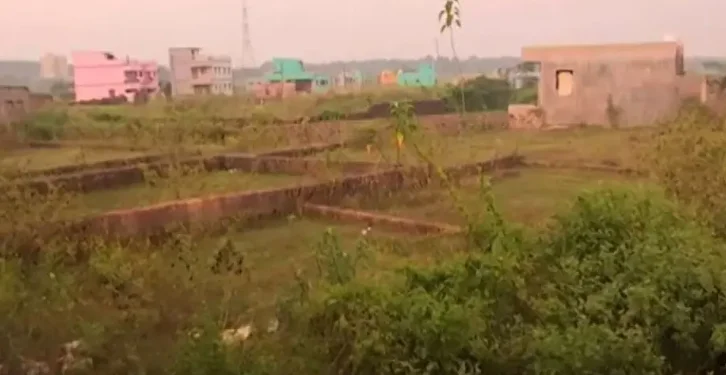Now Reading: 5 Powerful Reasons Odisha’s New ODA Rules Are Game-Changing
-
01
5 Powerful Reasons Odisha’s New ODA Rules Are Game-Changing
5 Powerful Reasons Odisha’s New ODA Rules Are Game-Changing

Table of Contents
Odisha Notifies 2nd Amendment to ODA Rules, marking a turning point for landowners and property developers in the state. With simplified procedures for plot sales, the state government has introduced a transparent and business-friendly approach to urban land development.
This second amendment to the Odisha Development Authorities (Planning and Building Standards) Rules, 2020, streamlines the process of sub-dividing and selling land parcels in plotted developments. The update is expected to boost investment, speed up real estate transactions, and eliminate long-standing procedural hurdles for both developers and buyers.
What’s New in the Odisha Notifies 2nd Amendment to ODA Rules?
The Odisha Notifies 2nd Amendment to ODA Rules with five key changes aimed at easing the real estate landscape. Here’s a breakdown:
1. Simplified Approval for Plot Sales

Earlier, landowners had to get final approval from the Development Authorities or Special Planning Authorities before transferring plots. Now, after receiving tentative project layout approval and developing the basic infrastructure, plot owners can directly execute sale deeds.
This is a major relief for developers, especially those dealing with plotted developments, as it allows earlier monetization and faster handover to buyers.
2. Greater Role for Regulatory Authorities
While plot owners can sell plots after the tentative layout approval, they must still register a written undertaking with the Development Authority. This ensures a legal commitment that the final layout and services will be completed as per approved standards.
This change brings a balance between ease of doing business and accountability—a long-demanded solution by stakeholders in the sector.
3. Mandatory Development of Basic Infrastructure Before Sale
To protect buyers and prevent fraud, the amendment mandates that developers must provide essential infrastructure like roads, drainage, electricity, and water supply before selling plots. Only after these are confirmed, can sales commence—even if final approval is pending.
This move promotes responsible development and ensures buyers are not left in the dark with underdeveloped properties.
4. Registered Undertaking for Compliance
The amendment introduces a compulsory registered undertaking, where the landowner assures completion of development as per the sanctioned plan. This undertaking serves as a binding agreement and can be legally enforced by authorities if there’s a delay or deviation.
By notifying this legal provision, Odisha strengthens buyer protection and discourages project abandonment or partial development.
5. Facilitating Planned Urban Expansion
The amendment is designed to reduce illegal and unplanned development in the outskirts of urban areas. With smoother legal pathways for land subdivision and sale, more developers are expected to come under the regulatory fold, encouraging planned, sustainable urban growth.
Why This Amendment Is a Game Changer
The Odisha Notifies 2nd Amendment to ODA Rules comes at a time when urban infrastructure development is booming. With increasing demand for housing and commercial plots, real estate stakeholders were seeking reforms that reduce bureaucratic delay while maintaining regulatory integrity.
This amendment meets those expectations by simplifying red tape, setting compliance checks, and opening up new opportunities for real estate investment.
Real Estate Developers Welcome the Move
Industry experts and developers have reacted positively to the amendment. The Confederation of Real Estate Developers’ Associations of India (CREDAI) Odisha chapter stated that the move will “bring speed, trust, and discipline” to the process of plotted development.
“This is a progressive step toward making Odisha a more investment-friendly state,” said one developer. “With clear legal procedures and buyer safeguards, we can now plan large-scale projects with confidence.”
Government’s Long-Term Vision
Officials from the Housing and Urban Development Department explained that the amendment is part of a broader plan to modernize urban planning and align Odisha’s growth with national real estate trends.
“The second amendment reflects our commitment to transparent governance and inclusive urban development. We’re removing bottlenecks without compromising on infrastructure and quality,” an official stated.
What Buyers Need to Know
If you’re a buyer looking to purchase a plot in a newly developed layout in Odisha, here’s what this amendment means for you:
- You can now buy legally registered plots earlier in the development process.
- Your plot must come with essential infrastructure before the sale.
- Developers are legally bound to complete the project as approved.
- You’re better protected by the regulatory authority and legal provisions.
Future Impact on Odisha’s Real Estate Market

With the Odisha Notifies 2nd Amendment to ODA Rules, industry insiders expect a 20-30% rise in plotted development projects in the next 12 months. It may also attract private and NRI investors who previously found Odisha’s land regulations too rigid.
Cities like Bhubaneswar, Cuttack, Rourkela, and Berhampur are likely to witness increased real estate activity, and land values may see a steady rise in organized developments.
Final Thoughts
The Odisha Notifies 2nd Amendment to ODA Rules is a positive, well-thought-out policy update. It blends ease of doing business with strong buyer protection and development control. The changes can potentially make Odisha a model state for transparent and investor-friendly urban planning in India.
As the state gears up for future-ready infrastructure and smart city expansion, this amendment might prove to be a foundational step in shaping its urban future.
Also Read – 7 Strong Signs Investors Choose Australia in Tough Times





















